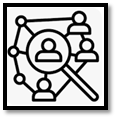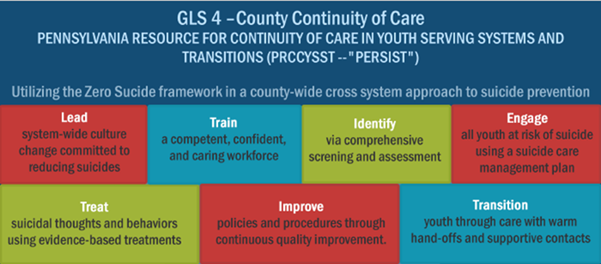Social Networks and Autism

The Social Dynamics of Intervention (SODI) Lab
 The Social Dynamics of Intervention Lab (SoDI Lab) works to understand and strengthen the social ecosystem of people on the autism spectrum, their families and communities to positively impact their outcomes at different stages of life. Elizabeth McGhee Hassrick, PhD is the Lab Director. The SoDI Lab applies the social model of disability, primarily targeting research and interventions that change society to improve the outcomes of autistic people. We use rigorous network measures to investigate social networks and the resources that flow through social connections. Social capital includes key resources, including emotional resources such as belonging, trust, and social reciprocity, and instrumental resources, such as problem-solving, advice-giving, the sharing of autism knowledge and resources, and the creation and sustainment of supportive social norms. We use qualitative and quantitative measures to capture social capital dynamics in ecosystems throughout different life stages.
The Social Dynamics of Intervention Lab (SoDI Lab) works to understand and strengthen the social ecosystem of people on the autism spectrum, their families and communities to positively impact their outcomes at different stages of life. Elizabeth McGhee Hassrick, PhD is the Lab Director. The SoDI Lab applies the social model of disability, primarily targeting research and interventions that change society to improve the outcomes of autistic people. We use rigorous network measures to investigate social networks and the resources that flow through social connections. Social capital includes key resources, including emotional resources such as belonging, trust, and social reciprocity, and instrumental resources, such as problem-solving, advice-giving, the sharing of autism knowledge and resources, and the creation and sustainment of supportive social norms. We use qualitative and quantitative measures to capture social capital dynamics in ecosystems throughout different life stages.
 Lab Basic Science Research focuses on two areas: (1) investigating the social capital of autistic individuals during key transitions; and (2) measuring networked systems and inter-organizational resource exchanges to learn how ecosystem system interactions (i.e. for example, broader connections in schools, districts, county service providers, healthcare systems) shape micro-system support for autistic people and their families. Each research area includes interdisciplinary collaboration for empirical research, rigorous social network measure development and testing, and research/community engagement partnerships.
Lab Basic Science Research focuses on two areas: (1) investigating the social capital of autistic individuals during key transitions; and (2) measuring networked systems and inter-organizational resource exchanges to learn how ecosystem system interactions (i.e. for example, broader connections in schools, districts, county service providers, healthcare systems) shape micro-system support for autistic people and their families. Each research area includes interdisciplinary collaboration for empirical research, rigorous social network measure development and testing, and research/community engagement partnerships.

 Lab Intervention Science Research, conducted in partnership with community using the Community Partnered Participatory Research Model (CPPR) focuses on three areas: (1) co-creating and testing interventions aimed at improving outcomes for people on the autism spectrum using pilot studies and RCTs and (2) business start-up incubation efforts, using quasi experimental and business startup methods, to translate network science to business contexts, including the development and testing of team building apps and other technological approaches that develop and strengthen ecosystem relationships, diversify connections, forge new ties, and increase access to social capital for autistic individuals, their families and communities, their service organizations, and larger collaborative learning networks of researchers, community partners, and systems.
Lab Intervention Science Research, conducted in partnership with community using the Community Partnered Participatory Research Model (CPPR) focuses on three areas: (1) co-creating and testing interventions aimed at improving outcomes for people on the autism spectrum using pilot studies and RCTs and (2) business start-up incubation efforts, using quasi experimental and business startup methods, to translate network science to business contexts, including the development and testing of team building apps and other technological approaches that develop and strengthen ecosystem relationships, diversify connections, forge new ties, and increase access to social capital for autistic individuals, their families and communities, their service organizations, and larger collaborative learning networks of researchers, community partners, and systems.

 Lab Networked Improvement Community Support focuses on using improvement and network science methods to provide actionable analytical support for university and community collectives. Our community collaborators are addressing key issues, including building service capacity for Latino immigrant communities in Philadelphia, addressing county level crisis coordination for youth experiencing mental health crisis, and environmental justice initiatives in historically impacted communities.
Lab Networked Improvement Community Support focuses on using improvement and network science methods to provide actionable analytical support for university and community collectives. Our community collaborators are addressing key issues, including building service capacity for Latino immigrant communities in Philadelphia, addressing county level crisis coordination for youth experiencing mental health crisis, and environmental justice initiatives in historically impacted communities.

